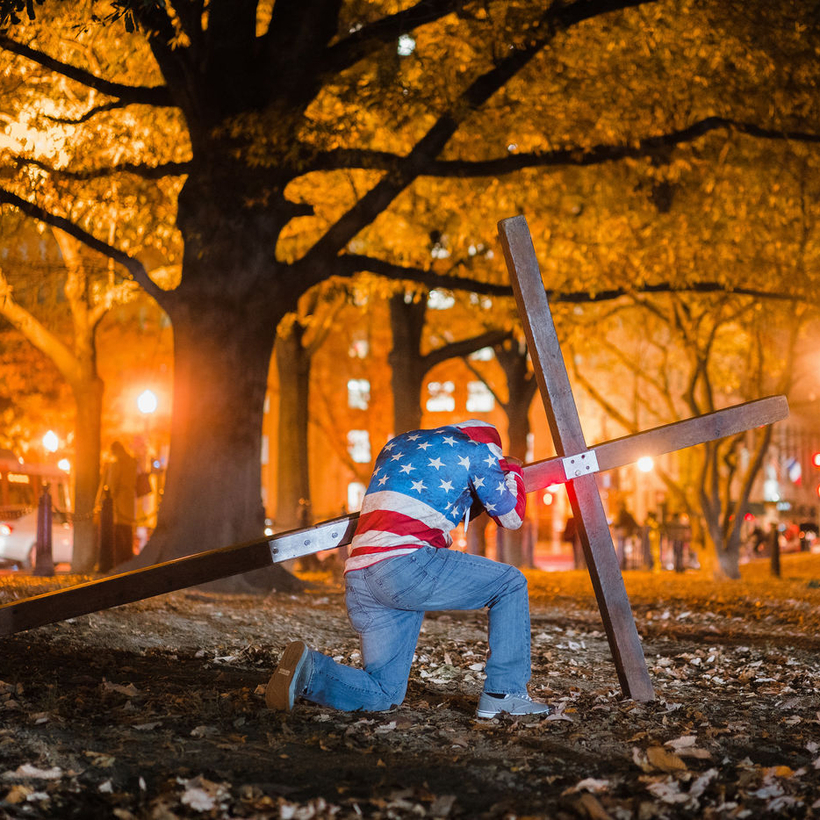At the beginning of November, in Dallas, hundreds of supporters of former president Donald Trump converged on Dealey Plaza, the site of John F. Kennedy’s assassination. They were there to await the imminent return of the late John F. Kennedy Jr.—a flock of right-wingers convinced that the long-dead, jet-setting, magazine-publisher scion of the most mythologized Democratic political family was about to emerge from hiding, join forces with Trump, and sweep their enemies from power.
It was all paradoxical and absurd, from a rational point of view. It was also an extremely ordinary sort of event. The writer Anna Della Subin does not cover the John-John phase—or any of the QAnon conspiracy cult—in Accidental Gods: On Men Unwittingly Turned Divine, but she doesn’t need to. From Jamaica to Japan, from cosmopolitan centers to remote islands, she recounts the repeated emergence of the unlikeliest messiahs, intercessors, and other holy and unholy figures—a continual insurgency of the irrational throughout the creation of our supposedly disenchanted present-day world. Their stories trace a history of what Subin calls mythopolitics—“how politics takes place in the dreamworlds of the popular.”


